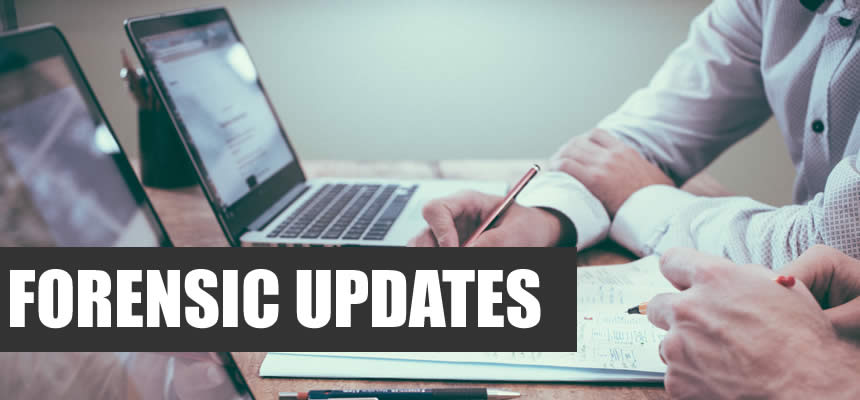Post Concussion Syndrome (PCS)

Complimentary Service of the Neurology, Learning and Behavior Center
Post Concussion Syndrome (PCS) is a collection of symptoms that include cognitive complaints such as inattention, concentration and memory difficulty; physical complaints such as headache, fatigue, dizziness and sensory sensitivity; and psychosocial complaints such as irritability, depression, anxiety and personality change. PCS is often a central focus in the litigation of minor to moderate head injury, particularly in those individuals who do not show improvement over a reasonable period of time. This legal update will provide a brief summary of current research in this area.
Diagnosis of PCS
It has been estimated that some level of post concussion symptoms are experienced by 50% to 80% of individuals during an acute period following mild head trauma. Approximately 50% of affected individuals experience symptoms for at least three months and approximately 10% to 15% complain of persistent post concussive symptoms beyond that.
Although PCS has been included in the fourth edition of the Diagnostic and Statistical Manual of the American Psychiatric Association as a diagnosis requiring further investigation, the existence of a true syndrome, one that relates to the experience of a mild traumatic brain injury, remains controversial. Less than 10% of individuals experiencing mild head injury demonstrate measurable neuropsychological deficits. The subjective nature of PCS symptoms and the overlap with other physical and psychological conditions makes accurate assessment, interpretation and litigation difficult.
The Experience of PCS
The subjective experience of PCS has been suggested as continuing for some people beyond the objective of threshold. Further, the endorsement of PCS symptoms occurs with considerable frequency in the normal population, particularly individuals with medical or psychological problems. A recent large scale study screening post concussion symptoms in the normal population is of interest (Sawchyn, et al., 1999). This study of a large group of college students reflected prevalence levels of mild traumatic brain injury in approximately one out of four individuals with a reported brief loss of consciousness. These results are consistent with other studies involving post concussive syndrome in university samples. In general, individuals in the mild head injury sample were experiencing very few symptoms of PCS. As a group a considerable amount of time had passed since their injuries. In respect to injury severity, this study suggests that the results of mild traumatic head injury alone are not strongly related to the experience of PCS.
The results of this study are also not incompatible with a psychogenic hypothesis of PCS as the authors found a significant correlation between self-reported symptoms of PCS and depression. However, this could also be a two way street. Stress caused by post concussive symptoms could precipitate depression as opposed to vice versa.
Unfortunately, even this study is not yet able to offer experts firm guidelines to determine whether persons who have suffered a mild brain injury and symptoms of PCS can be distinguished from persons without mild traumatic brain injury but who nonetheless endorse PCS symptoms. The results of this study, however, suggest an endorsement of post-concussion symptoms may be reflective of general distress rather than the occurrence or severity of a concussion per se. The subjective nature of post concussion symptoms continues to be problematic for clinicians. Self and family report observation measures continue to be researched and standardized in an effort to assist evaluators in understanding the experience and etiology of post concussive symptoms.
The Legal Implications of PCS
Attorneys must be aware of and sensitive to the current state of research in regards to post concussion syndrome. Neuropsychological experts firmly entrenched at either end of the continuum (e.g., mild head injury is always the cause of post concussive syndrome, or post concussive symptoms are more often than not related to psychological factors) must take care that they can represent the state of science to the trier of fact. For the time being it would appear that a prudent position is to carefully evaluate and examine pre and post trauma problems, issues, achievement and life course, carefully integrate these data with laboratory tests and nature of injury in an effort to provide a reasoned and reasonable diagnostic overview and etiological position.
The following references may be of interest.
Alves, W.M. (1992). Natural history of post-concussive symptoms. Physical Medicine and Rehabilitation, 6, 21-32.
Binder, L.M. (1997). A review of mild head trauma. Part II: Clinical implications. Journal of Clinical and Experimental Neuropsychology, 19, 432-457.
Binder, L.M., Rohling, M.L, & Larrabee, G.J. (1997). A review of mild head trauma, Part I: Meta-analytic review of neuropsychological studies. Journal of Clinical and Experimental Neuropsychology, 19, 421-431.
Dikman, S.S., Machamer, J.E., Winn, H.R., & Temkin, N.R. (1995). Neuropsychological outcome at 1-year post head injury. Neuropsychology, 9, 80-90.
Fox, D.D., Lees-Haley, P.R., Earnest, K., & Dolezal-Wood, S. (1995). Base rates of post-concussive symptoms in HMO patients and controls. Neuropsychology, 9, 606-611.
Gouvier, W.D., Cubic, B., Jones, G., Brantley, P., & Cutlip, Q. (1992). Postconcussion symptoms and daily stress in normal and head injured college populations. Archives of Clinical Neuropsychology, 7, 193-211.
Levin, H.S., Mattis, S., Ruff, R.M., Eisenberg, H.M., Marshall, L.F., Tabaddor, K., High, W.M., & Frankowski, R.F. (1987). Neurobehavioral outcome following minor head injury: A three centre study. Journal of Neurosurgery, 66, 234-243.
Sawchyn, J.M., Brulot, M.M. & Strauss, E. (2000). Note on the use of the post concussion syndrome checklist. Archives of Clinical Neuropsychology, 15, 1-8.
Szymanski, H., & Linn, R. (1992). A review of the postconcussion syndrome. International Journal of Psychiatry in Medicine, 22, 357-375.
The Neurology, Learning and Behavior Center provides multi-disciplinary assessment, case management and treatment services for children and adults with brain injury and dysfunction, Attention-Deficit Hyperactivity Disorder, language disorders, learning disability, developmental delay, emotional disorders and adjustment problems. The Center is dedicated to the provision of treatment services.